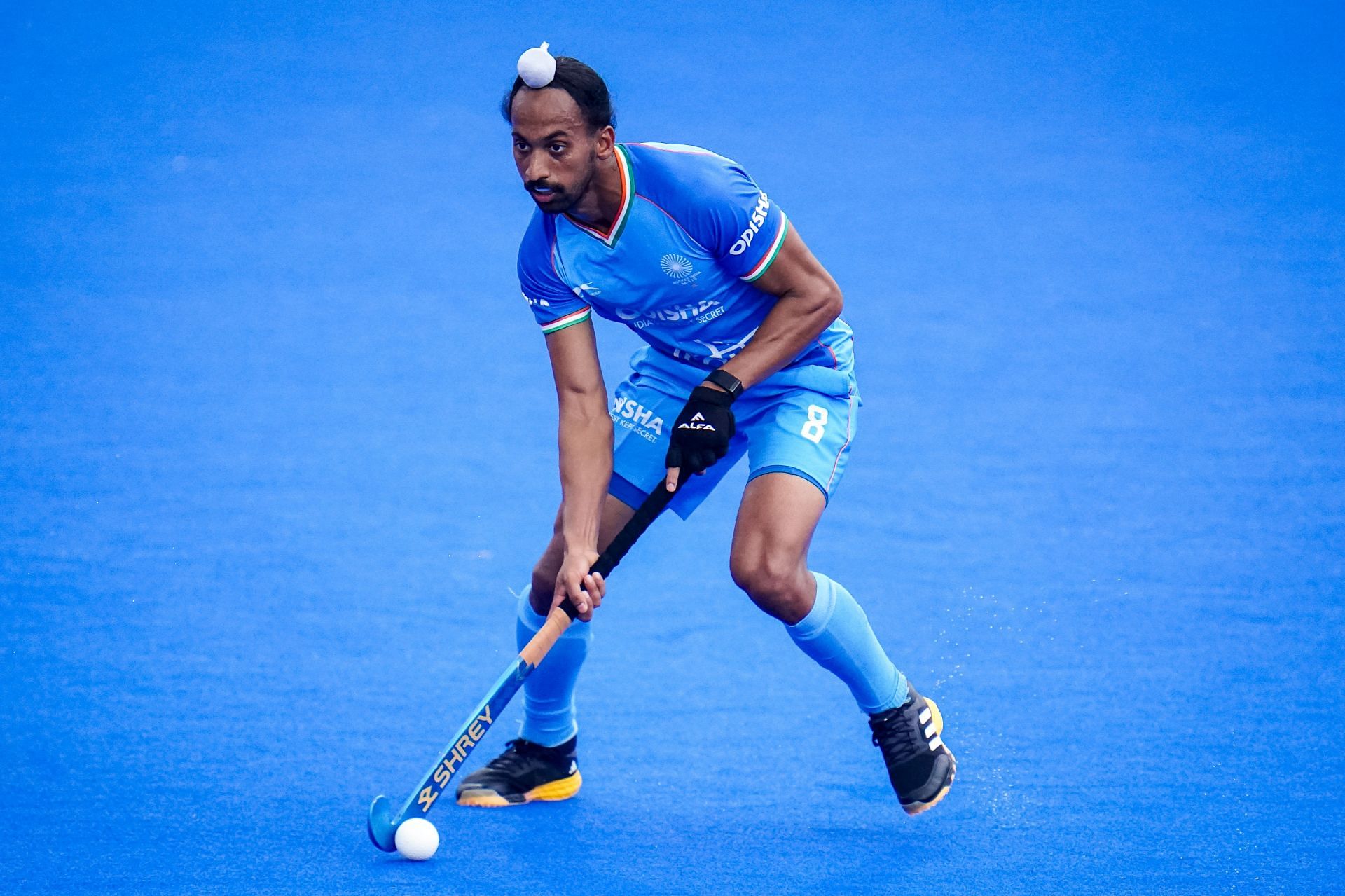
“Felt like we were the better team for the most part” - Hardik Singh reflects on ‘bad luck’ during Olympics Semifinal; opens up on future [Exclusive]
Indian hockey’s journey to Olympic success has been a dramatic transformation, moving from a low point in 2008 to back-to-back bronze medals in Tokyo and Paris.
The 2008 Beijing Olympics marked a nadir for the Indian men’s team, which failed to qualify for the Games for the first time since 1920. Even when they did qualify for London 2012, the team endured a disheartening campaign, losing all their matches and conceding 15 goals.
This stark contrast highlights the remarkable resurgence of Indian hockey. One of the standout performers of this revival is star midfielder Hardik Singh, who played a crucial role in ending the 40-year Olympic medal drought with a bronze in Tokyo and then securing another bronze in the recently concluded Paris Olympics.
Hardik’s connection to hockey greatness is deeply rooted in his family. His father, Varinderpreet Singh Ray, is a former international player. His heritage extends to his uncle Gurmail Singh, who was part of the last Indian team to win Olympic gold in 1964, and his aunt Rajbir Kaur, a pivotal figure in women’s hockey who won gold at the 1982 Asian Games. Additionally, Hardik’s paternal uncle, Jugraj Singh, was known for his formidable drag flicks.
In Paris, the Indian team, buoyed by their previous Olympic success, came close to achieving the ultimate prize. They narrowly missed out on a gold medal after a hard-fought semifinal against Germany, ultimately losing 2-3. Despite this setback, the team, led by Harmanpreet Singh, secured a bronze medal by defeating Spain 2-1 in the playoff for third place.
Reflecting on the Paris Games, Hardik Singh noted the near-miss in the semifinals, attributing the outcome to several factors, including the absence of Amit Rohidas due to a red card.
“I felt we were the better team for most parts of the semifinals, but the Germans executed perfectly moments before the final hooter. Call it bad luck or whatever, we also had to play without Amit Rohidas, who was red-carded during the quarterfinal against Britain. For a day after that semifinal, the entire team was in a state of shock,” Hardik told Sportskeeda.
Hardik emphasized the importance of maintaining self-belief and not focusing solely on opponents’ weaknesses.
“There was an opportunity to win a bronze medal, and we had to keep that belief in ourselves. We did not want to return empty-handed, and credit to the entire team for the kind of mental strength they showed to bounce back emphatically,” he added.
Road to the 2028 LA Games
Looking ahead, Hardik's focus is on the 2026 World Cup, with preparations for the 2028 Olympics in Los Angeles already in motion. He stressed the need for more international matches to adapt to the evolving dynamics of global hockey.
“The immediate focus is on winning the gold at the 2026 World Cup, we have a lot of time to prepare for that goal, and from there pick the pace for the next two years. Along the way, there will be a few new additions to the side, but the core would more likely remain the same, so that is an advantage,” he said.
“As far as preparing for the 2028 Games, there is no better test than playing real matches. For us as a team, the matches against the Netherlands just before the Paris Games helped a lot in assessing ourselves and making those last-minute changes,” he explained.
Hardik is hopeful that the return of the Hockey India League (HIL) would further bolster the team’s depth with emerging young talent.
“The return of the Hockey India League (HIL) could boost our bench strength with the emergence of some highly-skilled youngsters. All these youngsters could be groomed during the new Olympic cycle to ensure a smooth transition process going ahead,” he felt.
Sharing examples of Sanjay Rana and Jugraj, Hardik said that the younger guys need at least 5-6 years of grooming to reach the levels of India’s legendary penalty-corner specialists.
“It takes time, in 2016 we had the experience of Rupinder Pal Singh from whom Harman gained a lot, now we have an experienced Harman in that role but there might be off-days for anyone in sport. We have Sanjay and Jugraj in our squad now but they will also take some time to attain that level,” he explained.
As Indian hockey continues to build on this momentum, the focus remains on achieving greater heights in future international tournaments. The legacy of past heroes and the promise of emerging talent together pave the way for a hopeful and ambitious future for Indian hockey.